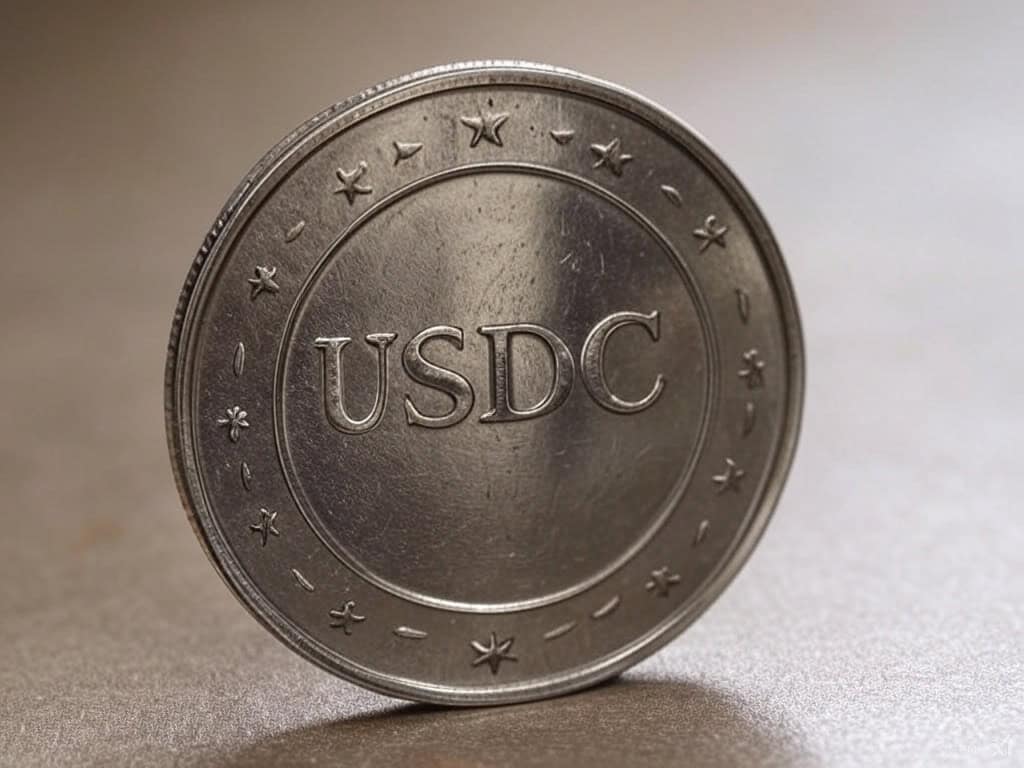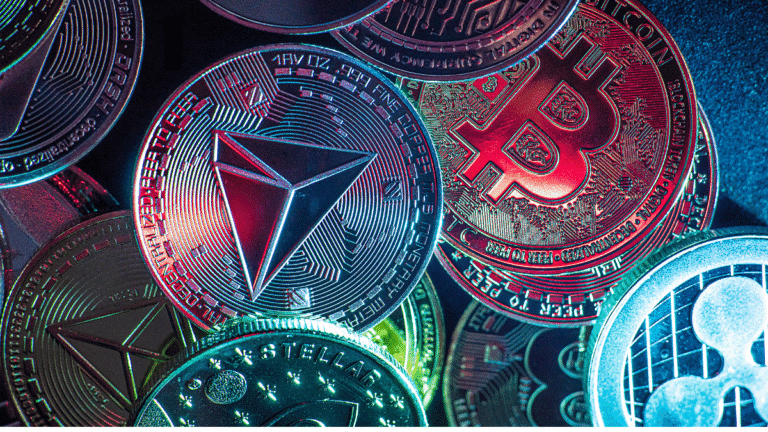Embracing Digital Wallets: Your Guide to the Future of Real Estate Transactions


As someone who has had the privilege of assisting many people in the purchase of property, I have become acutely aware of a significant change on the horizon that will eventually affect how you buy, sell, and invest in property in the future. Digital currency and blockchain technology. I’m writing this because I believe this is one of those things that will encroach little by little and then all at once, and everyone would be well served to understand these new tools in simple, clear terms—especially when it comes to something as important as your money and the rights to your property.
Your Real Estate Journey May Soon Include Digital Currency
A new way to transact real estate has been emerging and seems like it will hit its tipping point soon. With this new process your property ownership documents are collected and “tokenized” which basically means encapsulated into one entity and turned into what is called a Non-Fungible Token. In this form, your property can be sold on a blockchain.
What is a blockchain you may ask? A blockchain is a decentralized, digital accounting ledger that securely records and verifies data across a network of computers, making it transparent, immutable, and theoretically resistant to tampering. In the context of a real estate transaction it allows all participants of the transaction to exchange information transparently and securely. Ethereum is the largest blockchain in the world second only to Bitcoin. Ethereum provides a foundation for developers of applications to built upon and a Real Estate company named Propy is one of them.
First, let me reassure you: this transition isn’t entirely something to fear. In fact, for homebuyers and sellers, these new financial tools could open up more options and make transactions smoother, faster, and more secure. It could also open up investment opportunities you have never seen before allowing people at even the lowest income levels to invest in real estate. I want to help you understand not just what’s changing, but how it might benefit your next real estate transaction.
Understanding Digital Wallets: As Simple as Your House Keys
First and foremost these blockchain transactions will require the use of a digital wallet so if there is one thing I would suggest people get comfortable with now, it is a digital wallet. Think of a digital wallet as a secure place for your money online—similar to how your home protects your valuable possessions. Instead of physical cash, it holds digital currency like USDC (which maintains a stable value of exactly $1 per coin/token). Depending on the type of wallet, it could also hold a variety of cryptocurrencies including commonly known Bitcoin, Ethereum, and what are called Alt Coins, which are pretty much anything other than Bitcoin and Ethereum.
As you consider your options, you’ll likely encounter two main approaches:
Bank-Managed Wallets: Your financial institution handles everything for you. This is like hiring a property manager for your investment property—they handle the details while you enjoy the benefits.
Self-Managed Wallets: You maintain complete control over your digital assets. This is similar to being a homeowner who handles all maintenance and decisions personally—more responsibility but greater freedom from control. Some people care about this more than others. I personally do not trust financial institutions to have my best interest in mind so I will always be a cheerleader for what is called “self- custody.”
Both are valid choices depending on your comfort level, just as some homeowners prefer to handle maintenance themselves while others choose property management services.
Setting Up Your Digital Wallet: We’ll Walk Through This Together
The Bank-Managed Route
- Download your bank’s recommended app
- Log in with your existing credentials
- Verify your balance is correct
- Link it to a payment card for everyday use
The Self-Managed Approach
- Choose a trusted wallet application like Coinbase Wallet or Trust Wallet for online wallets (both are free) and Ledger or Trezor for self-custody ($150 – $250. You will need one of each.
- Create an account and set up security measures
- Securely record your “seed phrase” (think of this as the master key to your financial home—it needs absolute protection)
- Generate your public address (similar to your mailing address, but for receiving digital currency)
I recommend buying some usdc ($1) pr maybe even some Ethereum and start with a small test transaction of a dollar or two before moving larger amounts. This is your equivalent of a home inspection—making sure everything works before completing the deal. Self custody wallets feel a little scary at first but once you get used to receiving and sending small amounts you will get more comfortable.
How This Will Change Your Homebuying Experience
Imagine closing on your new home and instead of waiting days for wire transfers to clear, your down payment transfers instantly. Picture receiving sale proceeds immediately after closing rather than waiting for checks to clear. This is the promise of digital currency in real estate transactions.
For international buyers purchasing U.S. property, the benefits are even more significant—no more lengthy currency conversions or international wire delays that can jeopardize closings. For a seller wanting to receive USD from a Bitcoin buyer you are all set because the transaction process handled that conversion in an instant.
Real World Assets (RWAs): Opening New Doors for Property Investment
One of the most exciting developments is how blockchain technology is enabling new ways to invest in real estate through what we call “Real World Assets” or RWAs.
For you as a buyer or investor, this could mean:
- Purchasing fractional shares of high-value properties that would otherwise be out of reach
- Investing in real estate with much lower minimum investments
- Diversifying across multiple properties more easily
- Selling portions of your property value without taking on traditional debt
Think of it as similar to owning shares in a company, but instead, you’re owning shares of actual real estate—with all the potential benefits of property appreciation.
New Financing Options Through Blockchain
If you’ve ever felt frustrated by the mortgage process, blockchain-based lending might offer welcome alternatives:
- Faster approval processes with less paperwork
- New loan options that don’t rely solely on traditional credit scoring
- Potentially lower fees due to reduced overhead
- More flexible terms for unique situations
While traditional mortgages aren’t disappearing, these new options may provide solutions for buyers who find conventional financing challenging or restrictive.
How This Might Affect Your Next Transaction
As your real estate partner, here’s how I see these tools potentially improving your experience:
- Earnest Money: Deposit funds instantly with clear verification
- Down Payments: Transfer large sums securely without wire fraud concerns
- Closing Funds: Receive proceeds from your home sale more quickly
- Rental Income: If you’re an investor, potentially receive payments automatically
- International Purchases: Buy or sell property across borders with fewer complications
These improvements could remove much of the stress and uncertainty from the most critical financial moments in your real estate journey.
Keeping Your Digital Assets Safe
Just as you protect your home with locks and perhaps a security system, your digital assets need protection too:
- Safeguard your private keys and seed phrases as carefully as your home deed and insurance documents
- Double-check all digital addresses before sending funds, just as you verify wire instructions
- Keep secure backups of your wallet information
- Be wary of anyone asking for your private information
- Start with small amounts until you feel comfortable with the process
My role includes helping you navigate these security considerations just as I help you understand home inspections and title insurance.
The Future of Homeownership
While we often focus on location, schools, and floor plans when buying homes, a quiet revolution in how we transfer and verify ownership is unfolding. In the coming years, you might see:
- Property titles recorded on blockchain for greater security and transparency
- Smart contracts that automatically execute when conditions are met
- New investment opportunities that make real estate more accessible
- Rental agreements and payments handled through secure digital systems
As your real estate advisor, I’m committed to understanding these changes so I can guide you through them when they become relevant to your home buying or selling journey.
Taking Your First Steps
If this seems overwhelming, please know that you’re not alone. Many of my clients initially feel the same way. Here’s how you might begin:
- Talk to your financial institution about their digital currency plans
- Consider creating a simple digital wallet with a small amount to learn the process
- Ask questions—I’m here to help you understand how these changes might affect your real estate decisions
- Keep an open mind about the possibilities these new tools might offer
Remember, you don’t need to become a technology expert. Just as you trust professionals to guide you through other aspects of buying or selling a home, we’re here to help you navigate these new financial tools when the time comes.
A Personal Note
In my years helping families find and sell homes, I’ve learned that the most important element in any real estate transaction is trust. As we move into this new era of digital transactions, my commitment to you remains unchanged: I will work to understand these new systems, explain them clearly, and always put your interests first.
The home buying and selling process has evolved many times over the decades—from handshake deals to complex contracts, from cash to mortgages, from paper to digital documents. This next evolution may seem daunting today, but I believe it will ultimately make your real estate journey smoother, safer, and more accessible.
Your dreams of homeownership or successful property investment don’t change with these new technologies—and neither does my dedication to helping you achieve them.






